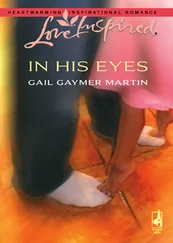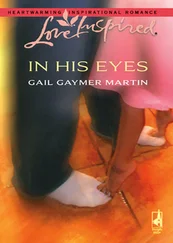SUZANNE
23 APRIL 2011
‘Suzanne, wake up.’
‘What time is it?’ Paul was sitting on the bed beside her, in his dressing gown. Suzanne opened her eyes.
‘Seven thirty. It’s time to get up. We have to leave in forty minutes.’
What was he talking about? Oh, today was Saturday. It was the Easter weekend. They were meant to be going sailing with Andy and Fiona.
In an instant, everything that had happened over the past few days came back. A wave of weariness washed over her. She shook her head.
‘Paul, I’m really not up to it. I can’t face going sailing now after all that’s happened. I hardly slept last night.’
He clucked his tongue in annoyance. ‘Andy’s been getting the boat ready all week.’
She said nothing.
‘Come on, Suze.’ His voice was upbeat. ‘We have to carry on as normal. Don’t let all this get you down.’
She looked at him in astonishment. How could she carry on as normal? How could she pretend that nothing had happened?
‘You go on your own then,’ she said. ‘I’ll stay here.’
He sighed. ‘I guess I could, if you really aren’t up to it. You’ll be alright on your own?’
She lay in bed, listening to him take a shower and brush his teeth. All sounds were muffled, as if a heavy cloth had been placed over her head. For half of the night, she’d replayed over and over in her mind what Jane had said on the phone, and Paul’s explanation, trying to make sense of it all.
But there was no sense in any of it. Any relief she’d felt after Paul had told her that Emma was lying had vanished. In its place, a bottomless well of confusion. All the questions she’d asked herself last night began to reappear, ghosts that couldn’t be laid to rest.
Had Emma really kissed Paul? What on earth had made her do it? He was forty years older than her. Could she really have some kind of girlish crush on him? Perhaps her father running off to Turkey with Yasmin had affected Emma more than Jane had realised. Had Emma been trying to get back at her father in some bizarre way? Or was she just a precocious brat who thought it was fun to run around creating havoc in other people’s lives?
She rolled over. From the gap in the curtains, dust motes jiggled in a slant of sunlight. Everything that had been clear three days ago was now twisted into a desperate muddle. This situation was beyond understanding. Why on earth hadn’t Paul said anything at the time? If only he’d told Jane there and then.
One thing bothered her more than anything else. Why was Jane so convinced that Emma was telling the truth? As Jane had pointed out, surely, she would know her daughter well enough to be able to tell whether or not she was lying. Then again, Jane wouldn’t find it easy to accept that her twelve-year-old daughter had brazenly kissed a fifty-three-year-old man – her friend’s husband to boot. Maybe she’d prefer to believe that Paul was a… She grasped for the right word. A child abuser? A paedophile, even?
Paedophile. The hateful word drilled into her brain. What was Emma thinking of, accusing Paul of such a thing? It was beyond belief. Emma must be to blame, not Paul. Surely.
She heard a clink on the table beside her. Paul was standing next to the bed.
‘I made you some tea, darling,’ he said.
Suzanne pushed herself upright, arranged the pillows behind her back. She sipped her tea, watching him get ready. He pulled on his white sports shirt and his knee-length shorts, and stepped into his sailing shoes. Then he folded his waterproofs and placed them inside the bag of sailing gear.
‘I can’t believe this is happening,’ she said, to herself as much as to her husband. She pictured Jane in the pub, after one of those Tuesday evening choral society rehearsals, guzzling beer like a bloke, putting on a meaty growl as she impersonated Geoff, their outspoken, rather bombastic conductor, and wondered if she would ever see her friend again.
‘Darling, I know this is difficult for you. But we’ve both got to be strong.’
He sat down on the bed and rubbed his nose playfully against hers until she couldn’t help a feeble smile. He took her hand in his and kissed her goodbye, saying he’d be back around 8pm. She heard more noises in the kitchen and smelt burnt toast. Then the front door slammed.
She stayed where she was. She couldn’t sleep now, but she couldn’t make herself get up. Her tea would be getting cold, but she couldn’t be bothered to drink the rest. She was on the edge of losing herself, as if she’d had too many hash brownies – though the ones she tried years ago in that Amsterdam café hadn’t produced anything quite like this. Patterns of light swirled on the wall, too bright. Her skin was no longer an impermeable membrane; every sight, sound and smell in the outside world seemed to assault her. She felt jittery, unstable. There was nothing solid she could latch on to for reassurance. She was trapped inside a situation she couldn’t comprehend, like a butterfly on a pin.
She breathed in slowly to a count of five, held her breath for five counts, then breathed out for five counts, as they did in the mediation group. For a while she kept on with this, hoping it would have some effect. It didn’t. She put her finger in her mouth and pressed her teeth into the flesh, meeting the resistance of bone.
If only she could turn the clock back to that sunny morning, before Jane’s phone call. Once more, something had cropped up out of the blue and pulled the bottom out of her life, just when she had least expected it. She thought of the rambling, rather shabby house she’d spent her youngest years in, two miles from the Dorset coast. Her father had filled it with his presence – his smoky beard, his cheery humming as he’d tended his orchids and written up chimney inspection reports. On Saturday mornings, while Irene had her weekly piano lesson, Rich trained with the cycling club, and her mother did the weekly house clean, she would set off with her father down the path to the beach, glad to have him all to herself.
They went there for the last time a month before he drowned. Midsummer’s day. The beach all theirs, stretching out, empty ahead and behind. Wind buffeting their faces; waves wild, spitting foam. As usual, as they’d walked the firm, wet sand along the shoreline, her father was throwing pebbles into the sea as she looked out for shells. Then he’d shouted, ‘Let’s get an ice cream, race you to the top!’ Soon after, he went out in a sailing boat for some stupid race and didn’t come back. His death had marked the end of her childhood, the end of those carelessly happy years.
And now her world had been torn apart, again, by a few words spoken by a friend over the phone. She tried to fasten on to some tangible, comforting thoughts, but none came. Suzanne pushed off the duvet. This was useless. She would go downstairs and make a fresh cup of tea. Marmaduke would be wanting his breakfast and the house needed a thorough clean – she hadn’t done it properly for ages. She would keep busy, that would be the best thing.
Halfway down the stairs, the doorbell rang. She stopped to adjust her dressing gown.
Who was it at this time in the morning? It wasn’t yet nine o’clock. Not the postman – today was a public holiday. None of her friends would visit at this time, unannounced. She opened the door a fraction.
It was Katherine, out of breath, her hair tousled.
‘Jane called yesterday and told me everything,’ Katherine blurted out before either had said hello. ‘Sorry, Suzy, I shouldn’t have barged in on you like this, but I thought I’d pop over and check you’re OK. I’ve been worried about you.’
‘I’ll be OK,’ she said, automatically. ‘Come in, I was just making some tea.’
Читать дальше












